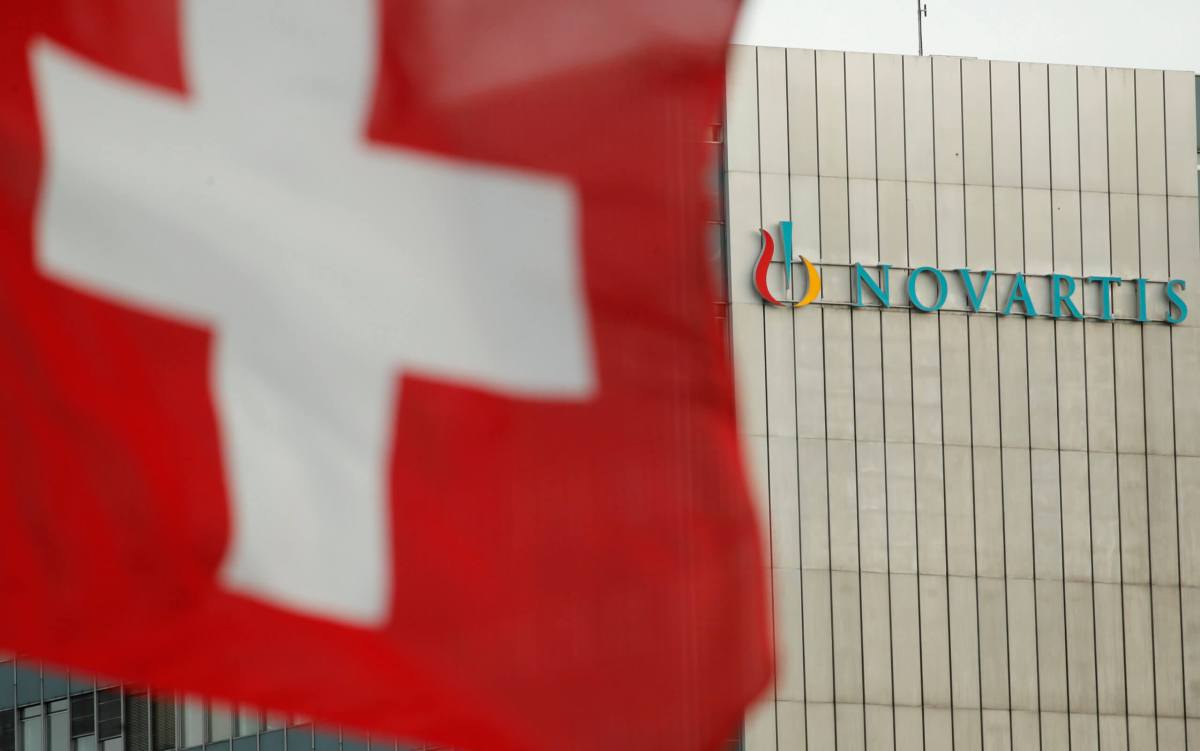By Silke Koltrowitz and John Miller
ZURICH (Reuters) – Swiss drugmaker Novartis
Novartis is paying $85 per share in cash, a 24% premium over The Medicines Co’s closing price of $68.55 on Friday, to acquire the U.S. biotechnology company’s lone drug, the cholesterol-lowering injection inclisiran.
The deal shows Novartis CEO Vas Narasimhan is ready to spend billions on not just rare disease treatments, as it did in 2018 when it paid $8.7 billion for gene therapy specialist AveXis, but also for cardiovascular medicines aimed at a market with potentially millions of patients.
Inclisiran, which still must win regulators’ approval, is set to require twice-yearly injections by doctors, far less frequently than the 26-injection regimens of Amgen’s Repatha and Sanofi’s and Regeneron’s Praluent cholesterol-lowering drugs.
“We believe that will lead to less patient abandonment,” Narasimhan told investors on a call on Monday. “Payers will have confidence knowing that physician administration will ensure patient compliance.”
Novartis shares were seen up 0.2%, premarket indicators showed. Repatha and Praluent, which similar to inclisiran aim to inhibit PCSK9 proteins that lead to elevated levels of bad LDL cholesterol in people with heart disease, have struggled to gain traction due a demanding dosing regiment as well as objections to their price, which makers have been forced to slash to less than $6,000 annually. Narasimhan said he is confident that inclisiran can produce an attractive return on investment and contribute to sales starting in 2021, contingent upon regulatory approval and completion of the deal. “We see returns well in excess of cost of capital,” Chief Financial Officer Harry Kirsch said. Novartis plans to pay for with one-third cash and two-thirds long-term borrowings.
Inclisiran could become one of its best-selling medicines, Basel-based Novartis predicted, adding the transaction had been approved by the boards of both companies.
The acquisition would modestly dilute core earnings per share versus a no-deal scenario during the next few years, but should then be significantly accretive to group core operating income and core EPS in the medium term, Novartis said. HEART DISEASE
Inclisiran, for use on top of statins by heart patients who struggle to lower their cholesterol levels with traditional therapy, is seen as complementing Novartis’s growing business with its heart-failure medicine Entresto, which topped the $1 billion annual revenue threshold last year. Narasimhan said the company can leverage the sales force it built up to help boost the initially slow Entresto sales to market inclisiran, too.
Novartis has historically had a strong cardiovascular drug franchise, but lost ground when Diovan, once a $6 billion-per-year seller, lost patent protection in 2012. It left the company without an immediate, innovative follow-up product. The deal fits Narasimhan’s target of acquisitions of up to $10 billion to bolster the group’s portfolio of medicines with new products or technologies.
Novartis’ hunt for deals comes as billions in revenue is under threat from upcoming patent expirations including on Lucentis, for macular degeneration, iron overload medicine Exjade and $3.3 billion-per-year MS drug Gilenya. Still, Novartis said it is confident that new products including inclisiran will help bolster growth and profitability.
It expects to expand core operating income margins in its Innovative Medicines division to the “mid-thirties” in the near term and to the “mid-to high-thirties” in the medium term. (Reporting by Silke Koltrowitz and John Miller; editing by Jane Merriman and Jason Neely)


















